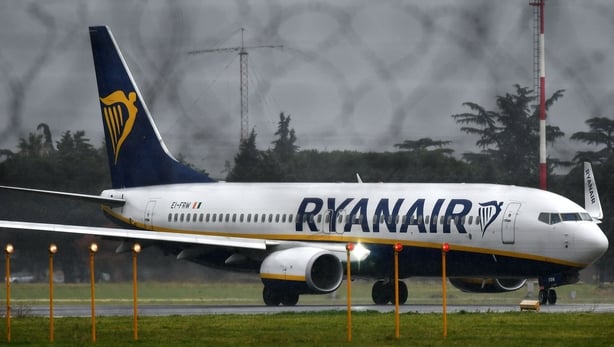Holiday airline Germania collapsed today, succumbing to wider sectoral woes after failing to secure financing to navigate a short-term cash squeeze.
The German airline also cancelled all of its flights immediately.
The insolvency of the company, which carried about 4 million passengers a year, follows the failure of Germany's second-biggest carrier, Air Berlin, in 2017 and underscores the turbulence in the European airline industry.
Britain's Monarch Airlines and Italy's Alitalia also filed for insolvency in 2017, with German charter carrier Small Planet Airlines hitting financial trouble last year after an expansion drive.
Germania, founded in 1986, blamed its cash shortage on rising fuel prices, a stronger dollar, delays in integrating new aircraft into its fleet and high maintenance costs.
"Unfortunately, we were ultimately unable to bring our financing efforts to cover a short-term liquidity need to a positive conclusion," its chief executive Karsten Balke said in a statement.
The carrier's 37 aircraft mainly flew German sun-seekers to more than 60 destinations in Europe, North Africa and the Middle East.
The Berlin-based company also offered flights to less conventional destinations, including Iran, Iraq and Armenia.
It said all flights had been halted overnight after it filed for bankruptcy late last night.
A spokesman for the airline's administrators said it was unclear whether operations could resume and whether the company could continue.
Its CEO thanked Germania's staff and apologised to passengers who had booked directly with the airline and would not be entitled to alternative flights.
A Germania spokesman declined to comment on the number of passengers or staff affected.
The Federal Association of the German Aviation Industry said other airlines, including Condor, Tui Group's TUIfly and those belonging to the Lufthansa Group, would offer stranded Germania passengers special rates to return to Germany.
Tour operators will organise alternative travel arrangements for holidaymakers who have booked package deals, the German Travel Association (DRV) said.
Germany's Economy Minister Peter Altmaier said he had no specific plans to offer help to Germania, adding that the government would watch the situation closely.
"The horror for German air travellers continues," Klaus Mueller, head of the Federation of German Consumer Organisations, said of the airline's demise.
Europe's largest budget airline Ryanair, which this week posted its first quarterly loss since 2014, said it expects further consolidation in the industry over the next 12-18 months because of overcapacity.

It predicted a further rise in oil prices would put the squeeze on smaller airlines that cannot afford to increase their oil price hedging.
Ryanair's chief operating officer said the airline will offer Germania pilots, engineers and cabin crew "immediate" starts if they apply for vacancies in Germany, Austria and across Europe.
Germania's financial problems emerged at the start of January when it said it was examining several financing options to secure its short-term liquidity requirements.
It said on January 19 that it had received a commitment for €15m in funding that would secure its medium and long-term future, but at the end of last week it confirmed media reports that it had delayed paying wages.

